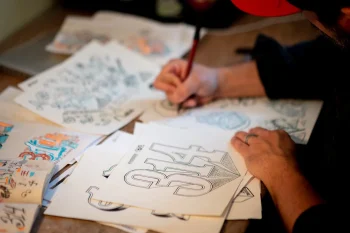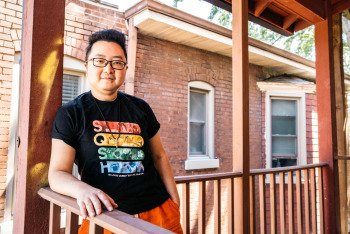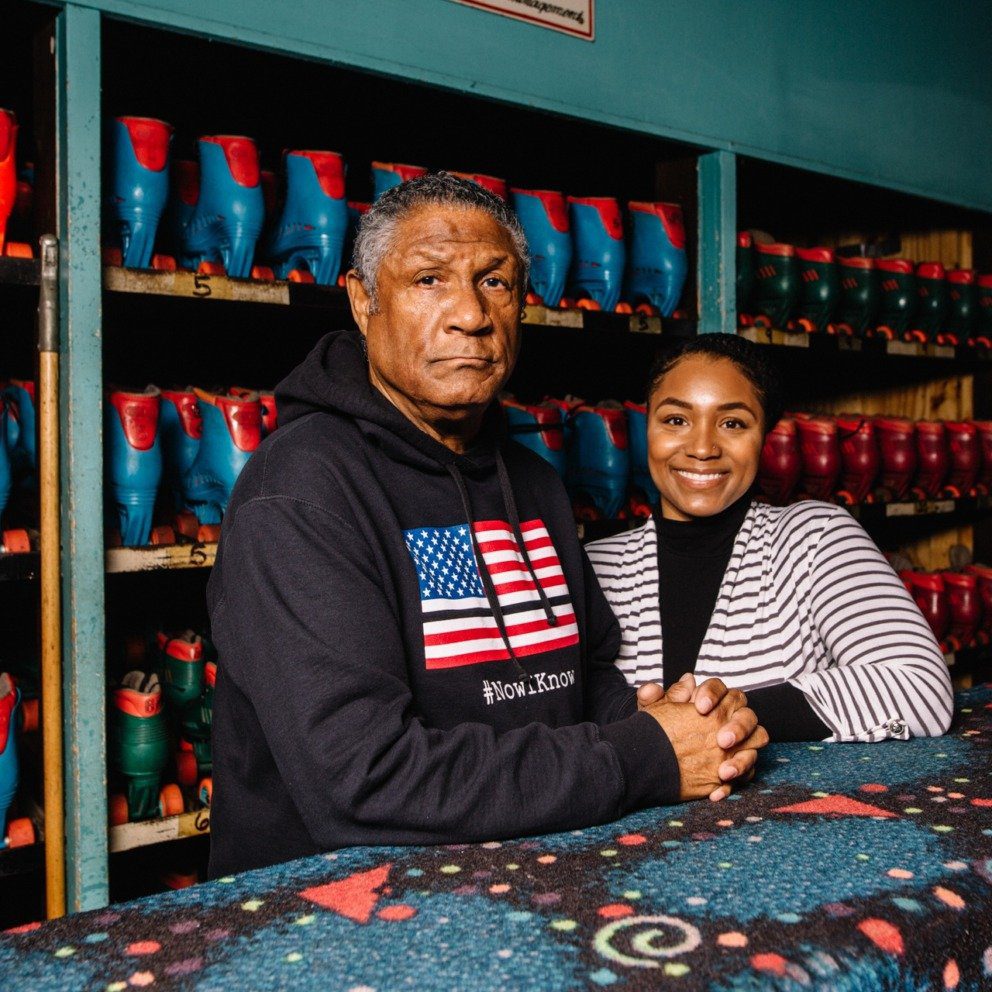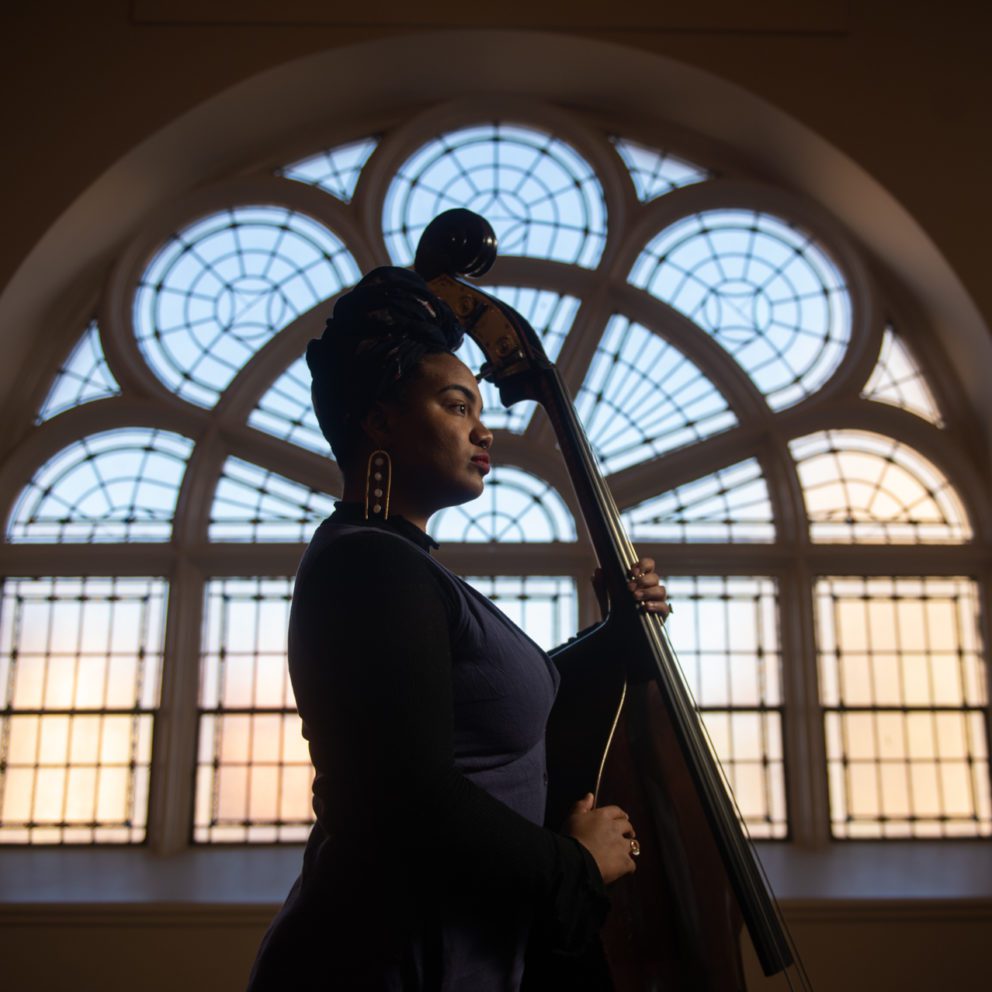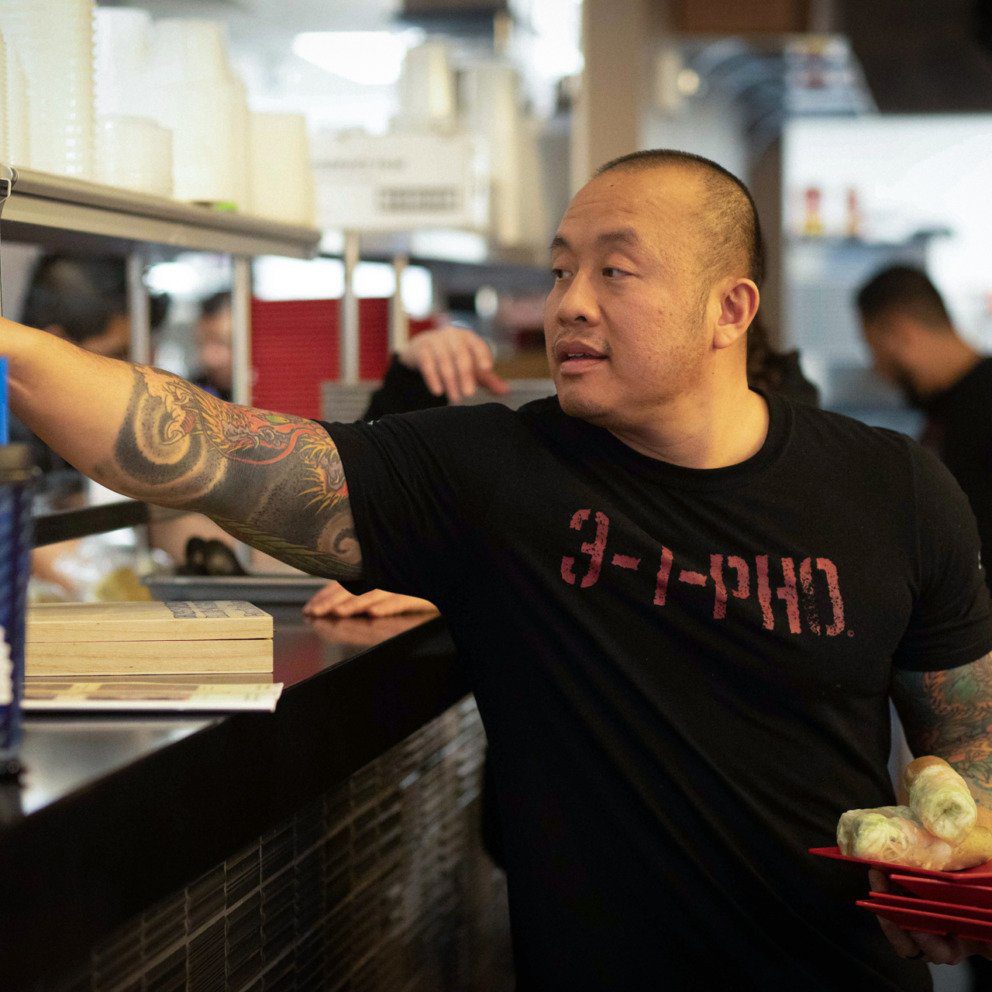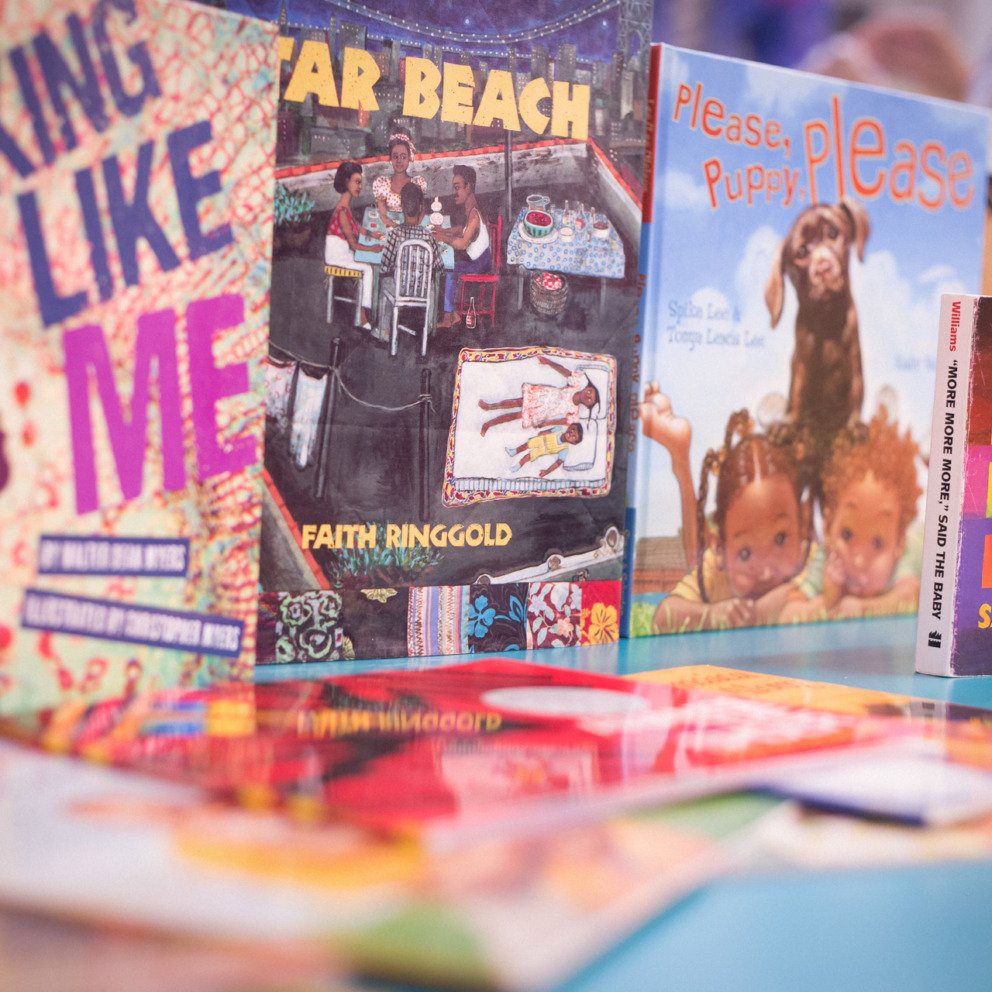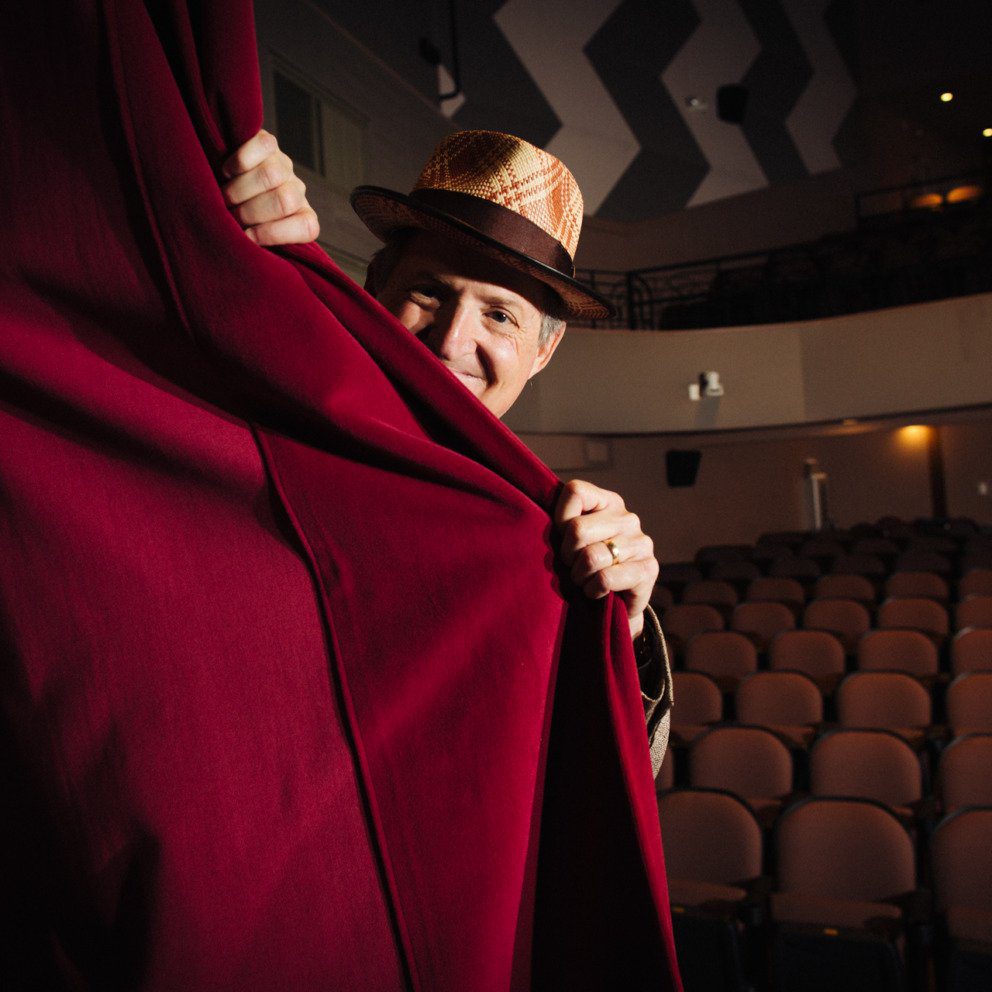Shaping the Soundtrack of St. Louis
Hometown hip hop legend DJ Kut reflects on the role he's played in the region's music scene.
Picture it: an expansive amphitheater filled with thousands of concertgoers sweating in the summer heat, bobbing to the steady bass beat emanating from the stage. It’s 2001 and MTV’s Total Request Live Tour is in full swing, bouncing from city to city across the summer months with headlining acts that included Destiny’s Child, Eve and of course, Nelly and the St. Lunatics.
When it came time to decide on the tour’s lineup, DJ Kut was the natural pick to be the St. Lunatics’ touring DJ. As a longtime staple of St. Louis’ radio scene and a beloved local DJ, curating the vibe and energy of the St. Louis collective’s stage presence across the country was too serendipitous to pass up. The impact of Nelly and the St. Lunatics on rap music at the turn of the millennium is undeniable, and to this day, Kut still revels in the signature St. Louis energy he was able to cultivate on stage alongside some of St. Louis’ most beloved rappers.
“You got a work out. When the St. Lunatics were on stage, you weren’t just sitting down, you was rockin’ the whole time,” he emphasizes. “It was just, man—it was just a gigantic party. It was a big St. Louis party city to city, wherever we went. Crazy. It was nuts. When we left the stage, we were drenched.”
Certainly, Nelly, Murphy Lee, and the rest of the St. Lunatics built up a sweat from moving around the stage, but DJ Kut’s performance on the turntables is also surprisingly athletic. With plenty of spins and technical flair, flicks of the wrist and backwards tricks, Kut has always taken immense pride in his own skillful DJ performance and the significant role DJs have played in shaping hip hop’s early roots.
“The whole artform of the DJ has been watered down,” says Kut. “Throughout history, the DJ was actually before the emcee. Think about it, with Grandmaster Flash and the Furious Five—Grandmaster Flash was the DJ and he had rappers. But the focus was the DJ. You could not be an emcee without a DJ.”
“A turntable is actually an instrument,” Kut adds. “But as technology went on and rappers began to be more famous than the DJ, then they stopped focusing on the art of the DJ.”
It might be easy to reduce this kind of veteran commentary to mere nostalgia. After all, the marriage of technology and hip hop has given rise to new production capabilities, greater access to a wider range of music, and the chance for artists to build a fan base without relying on the ever-elusive record deal. And to be clear, Kut isn’t against technology in hip hop—he’s just keenly aware of what has been lost over the years as mainstream attention, celebrity aspirations and corporate radio takeovers have remade the music landscape.
But unsurprisingly, his voice brightens when he talks about his early years discovering hip hop and later developing a love for radio. He’s lighthearted as he recalls hanging out around his father’s record store, originally called Henry’s Black Connection and located in the Vandeventer neighborhood.
“Everybody back in the day, you know, was playing music loud outside. I would always enjoy that—you know, a big loud speaker, put on a record player—that was before we really started calling them turntables. But yeah, that pride of ‘I’m playing these songs loud for everybody up and down the street.’”
When DJ Kut was 11 years old, The Sugarhill Gang dropped their infamous single, “Rapper’s Delight,” a song that would eventually become a foundational hip hop classic memorized by millions of hip hop lovers around the world. Listening to “Rapper’s Delight” hooked Kut on The Sugarhill Gang and the hip hop genre from that moment on.
His introduction to radio came a few years later when Kut joined Florissant Valley Community College’s 100-watt campus radio station, 89.5 FM, giving him access to hands-on learning and technical experience. After leaving Florissant Valley, Kut secured his first professional radio slot with Majic 108, one of the most popular radio stations in St. Louis at the time. As Kut’s fan base grew, his repertoire included higher-profile radio slots, private parties, popular nightclubs, major concerts and weekends at the now-closed Saints Family Rolling Skating and the Palace Family Skating Center. He became a pillar of the city’s radio and music landscape.
“Radio was just so dope in the 90s…When the DJ was on the air mixing, you better record it because you might not hear that song for a minute,” he reminisced. “It was just freedom. It was unrestricted, you know? Be creative, let your juices flow on the turntables. Do what you do, just don’t play no profanity on the radio. Radio was everything. People relied on radio.”
In 2002, Doc Wynter, well-known St. Louis radio personality and at that time, VP of Urban Programming for iHeartMedia, asked DJ Kut to join the starting line-up for the re-launch of Power 105.1 in New York City. As much as he loved St. Louis, he felt he needed to take this opportunity take his career to the next level.
But after a decade of on-air work in New York City, Kut was offered an on-air position back in his hometown to help relaunch radio station 95.5 The Lou. His homecoming was received with a warm welcome, and he slid easily back into his on-air role as a notable voice for St. Louis’ Black community.
That responsibility became even more critical as news of the shooting death of Michael Brown spread across the city in 2014. Kut wasn’t scheduled to work on that Saturday, but as he explains, “I’ll never forget looking at the news of Michael Brown’s death on my Instagram. I just sat on the side of my bed. And I started getting dressed and headed to the station. I didn’t know what the outcome was going to be, but I just got to the station and got on the air.”
“Cops killing Black people was nothing new, beating Black people was nothing new, but this was like, right in our backyard,” Kut adds. “And the police left Michael Brown laying there in the street for hours. Just left him lying there. That could’ve been my son.”
He’d later run into people who would stop him to thank him for sharing news of the shooting and subsequent protests on the air. For some, it was their only connection to accurate, real-time updates on the protests as they developed—and a much-needed avenue to allow the city’s Black residents to make sense of the tragedy.
At the time of this publishing, DJ Kut is no longer working on-air due to pandemic-related business decisions. Still, the city’s legendary DJ is an indisputable icon for generations of aspiring St. Louis musicians, longtime hip hop heads, emerging music producers, and more. DJ Kut helped usher in one of St. Louis’ most influential eras in music history, cementing the city as a heavyweight in hip hop’s history book.
“My whole career is a highlight because you got somebody who had a dream about being on the radio, being a DJ on tour, being that dude,” he says. “You know, a lot of people are dead and gone who never lived their dreams. I was able to achieve my dreams and then some.”
Join the Story
- Learn more about the history of St. Louis’ Black radio personalities here.
- Find out more about how “Rapper’s Delight” became hip hop’s first radio hit.
